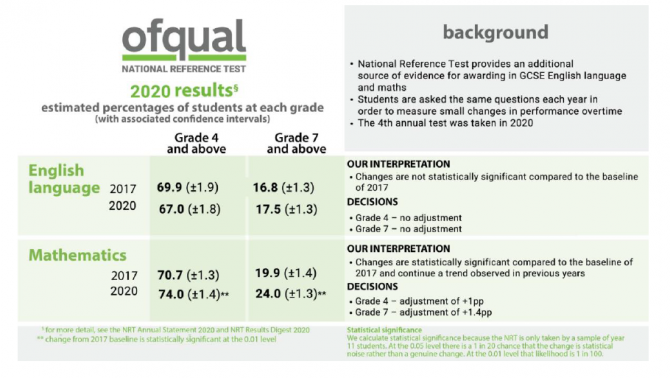Ofqual has revised upwards its standardised grades for maths pupils after its national reference tests showed a “steady increase” in improvement.
First piloted in 2016, the tests involve a sample of year 11 pupils sitting the exams each year in order to monitor, over time, how well cohorts of pupils are performing.
The results act as a guide for increases or decreases in that cohort’s GCSE grades.
Ofqual said that a “statistically significant upward trend across the four years tells us that the four years of NRT maths data can reasonably be summarised as showing a steady increase in student performance”.
But they said making adjustments this year was “operationally different” after exams were cancelled. In normal circumstances, Ofqual would adjust the prior attainment-based predictions used by each exam board.
However, for 2020 they applied the adjustment to the national prediction used in the statistical model to be used to standardise grades across all centres.

The results is a small upwards adjustment to the proportion of students achieving grade 9.
That was a 1.4 percentage point increase at grade 7 and one percentage point increase at grade 4.
Because there are no grade boundaries being set for 2020, they had to make proportionate adjustments at grades 8, 6 and 5, and also at grades 3 and 2.
Despite the subsequent government U-turn to award pupils their teacher grade, Ofqual said: “In many cases the calculated grade will be higher than the CAG because the evidence from the statistical standardisation suggests that the school’s judgements were a little severe, but in other cases it is likely to be a result of the small adjustment applied to the statistical predictions.
“Therefore, we believe that the adjustment has been taken into account and will be reflected in the grades issued to students this summer.”








Your thoughts